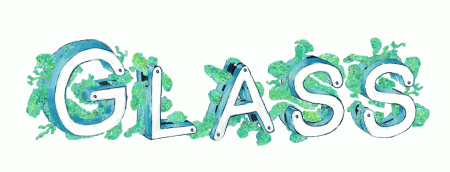Serious games and fun : a holy grail ?
- glass2016
- 7 juin 2016
- 3 min de lecture
On the second day of the GLaSS, we welcomed Antoine Taly, teacher in the Frontières du Vivant program at the CRI, and researcher in biochemistry at the CNRS, who also happens to be fond of family games and very interested in pedagogical innovations.
He came to give us a short presentation about biodesign oriented serious games, to open our eyes to this research field and to both the possibilities it offers for game creation, and the potential for games to help the research itself.

Games like Phylo, Fold-it, Dragonbox, really ask for a redefinition of what makes a game, and tends to push its limits a bit further, which is the very reason of our presence at the GLaSS. Simulations representing and manipulating physically inaccessible and extremely complex domains, games that allow players to contribute to research through their inputs, or simply teaching through the game mechanics as a more intuitive or immersive way to learn: but how can a serious game, which aim is to teach or work, still remain a game?
A game, in essence, is a free activity, the purpose of which is to entertain. By many aspects, learning is a constraining activity, that requires discipline and surely isn't about entertaining. Nevertheless, learning is vital for each and every life form and developing minds, and in many cases, learning is made easier by a sense of rewarding, which is one of the most essential mechanics of a game. Can a game reward learning?
"We pretend to fight just like we learn to fight", said Antoine Taly, poiting out how simulating, which is the very characteristic of games, can actually be a powerful tool for learning.

More than a constraint, learning is something we do constantly in our daily lives. Every new situation we face requires us to adapt. Games constantly confront us with new situations: they are based on giving an objective to the player, which he freely accepts to complete, that challenges him and rewards him with feedback.
Teaching could just work the same way.
"You try something, you get a feedback, you learn. It's the feedback loop." Even if it may not be as simple as that (is learning through gaming a conscious process, or an unconscious one?), this is definitely a whole new way to define and create gaming experiences.
Learning and playing are very similar activities when you look at a few common characteristics, but most of the already existing serious games are very disappointing, as learning tools as much as games. The equilibrium between both fun and learning content is a very hard thing to attain. On one hand, the player has his own interpretation of the game content, and therefore has his own conception of what is fun and what is not. Some will have fun learning, and will willingly do so, whereas others will refuse playing if learning is an advertised feature.
But on the other hand, the context of playing is also very important: playing in a classroom, or within your company, can change our perception of the experience.
In either cases, the real challenge of creating such games is to associate the learning objectives with game mechanics that truly qualify it as a game, and not as a "gamified" content that only has the appearance of a game, like illusion of choice, or basic interactivity. This implies a close cooperation between researchers on one side, the data they need, and what they want to teach through the experience, and game creators on the other side, who know how to create the appropriate mechanics to appeal to the player and meaningfully communicate what needs to be taught.
Antoine Taly concluded that learning and playing are close activities, and that they need to live together and to cooperate. He told us that in the wide variety of games that already exist, there is a place for balanced serious games, and that they need innovative and audacious creators!

You can go to Antoine Taly's Blog


Comments